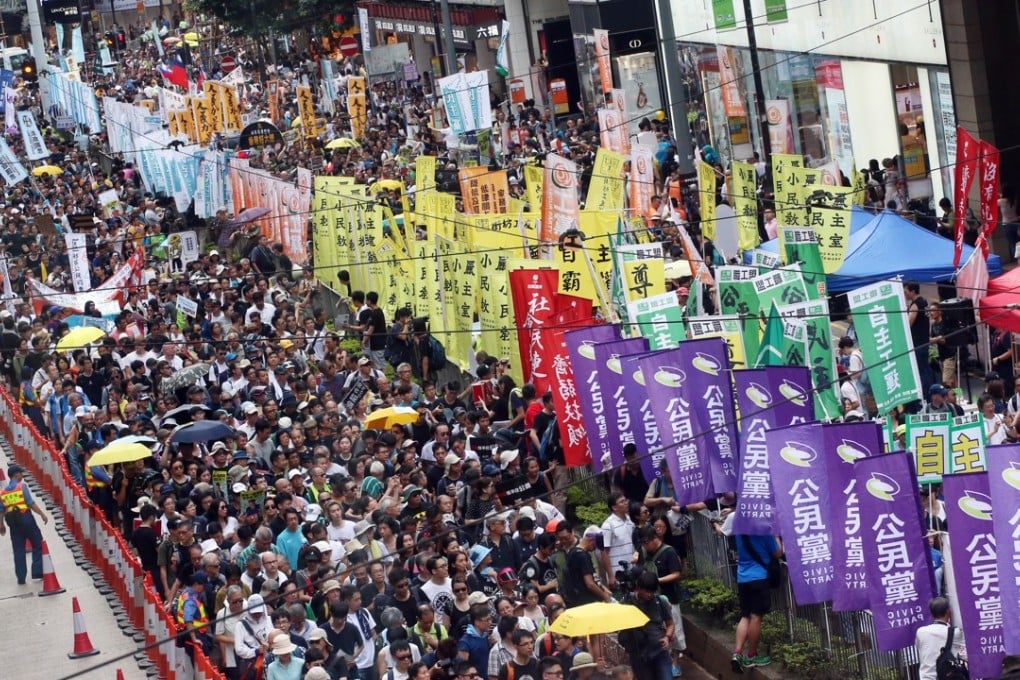Advertisement
Annual July 1 pro-democracy march in Hong Kong draws record low turnout: police
Organiser blames aggression and rain for turnout of just 66,000, but police put figure at a 14-year low of 14,500
Reading Time:3 minutes
Why you can trust SCMP

The July 1 anti-government march on Saturday saw its size shrink by almost half to a two-year low of about 60,000, with organisers blaming the low turnout on perceived aggressive tactics by police towards protesters in recent years and heavy rain.
Police put the turnout at 14,500 – the lowest number since official records of the turnout began in 2003.
Researchers from the University of Hong Kong public opinion programme said about 27,000 to 35,000 people took part.
Advertisement
The Civil Human Rights Front, an umbrella group of some 50 pro-democracy organisations, conceded the turnout was low, but its convenor, Au Nok-hin, maintained it was still “a good show”.
Advertisement
“In recent years, police have taken a more hostile attitude towards protesters and used pepper spray more often than in the past. We should actually praise those who turned up this year for their courage,” Au said.
Advertisement
Select Voice
Choose your listening speed
Get through articles 2x faster
1.25x
250 WPM
Slow
Average
Fast
1.25x